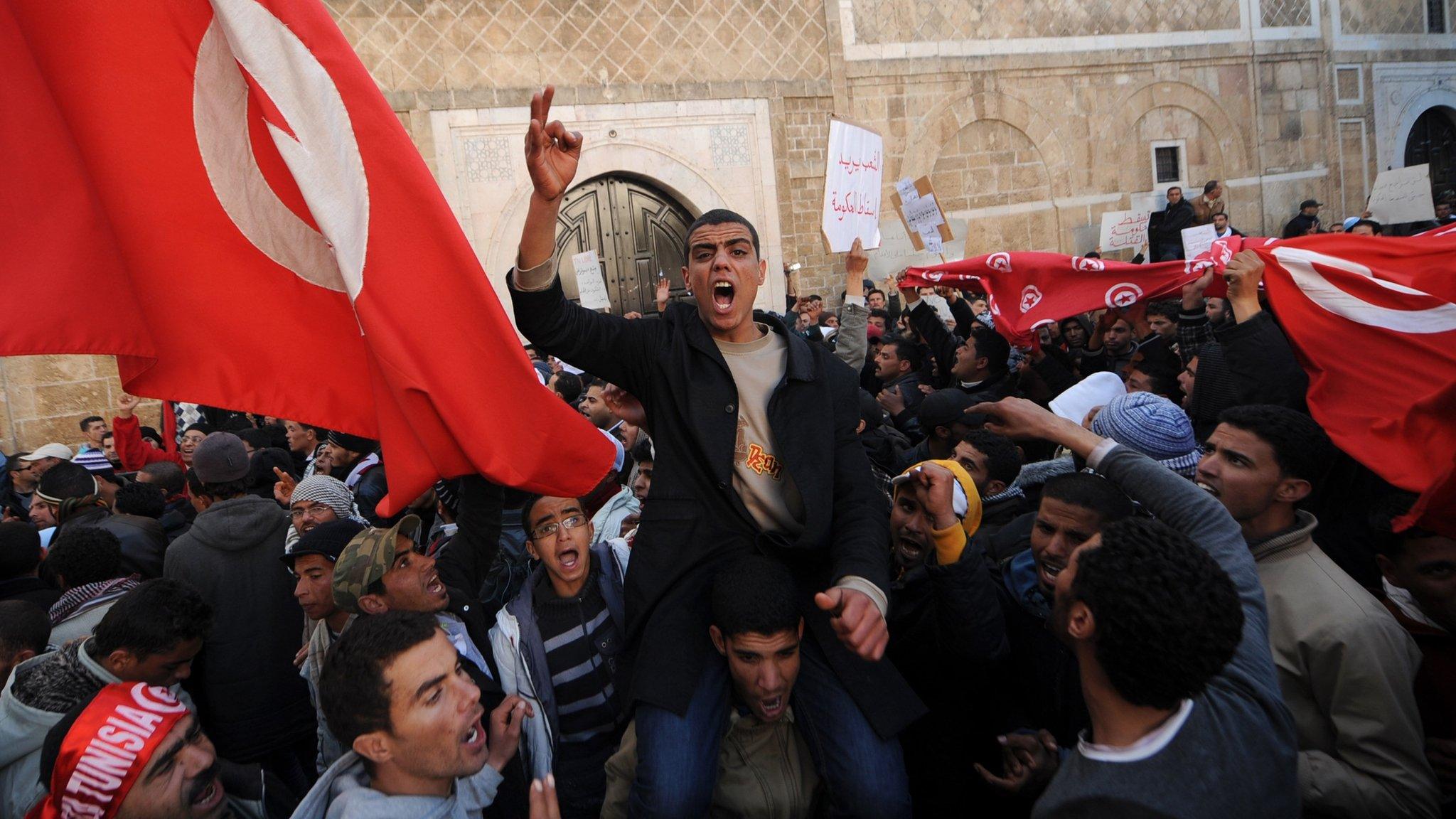Tunisia protests: President vows to end 'ordeal' of unemployed
- Published
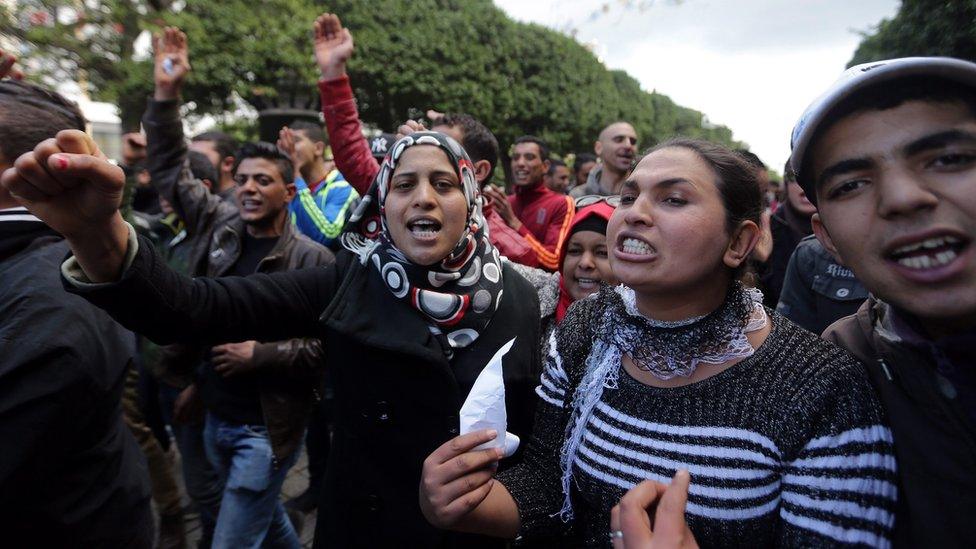
More than a third of young people in Tunisia are without work
Tunisia's president says he understands frustration that has led to protests over unemployment, but instability could be exploited by extremists.
A curfew began on Friday evening after "attacks against public and private property", the interior ministry said.
Protests over youth unemployment have spread from the northern region of Kasserine to towns and cities.
In a televised speech, President Beji Caid Essebsi said the country would "get out of this ordeal".
How Tunisia is keeping Arab Spring ideals alive
"Arab Spring" pioneer under threat
In his first address since protests began almost a week ago, Mr Essebsi said on Friday night: "There is no dignity without work. You can't tell someone who has nothing to eat to stay patient."
He said there was a risk that the Islamic State group in neighbouring Libya "finds that the moment is opportune to infiltrate into Tunisia".
Mr Essebsi said on Wednesday that more than 6,000 jobs would be given to people from the town of Kasserine.
The government also promised an investigation into allegations of corruption.
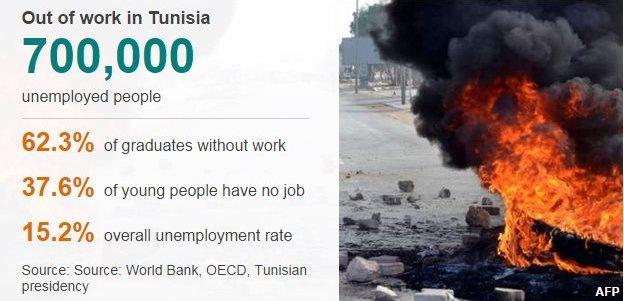
Unemployment has worsened since the 2011 revolution, when President Zine al-Abidine Ben Ali was ousted. More than a third of young people in Tunisia are without work.
Tunisia's uprising was the first of the Arab Spring, and often hailed as the most successful.
But correspondents say the authorities have failed to resolve the problems of social exclusion and poverty, and face a growing jihadist threat.
The curfew, which runs from 20:00 to 05:00 local time (19:00 to 04:00 GMT), was put in place because of the "danger to the security of the state and it citizens", the interior ministry said in a statement.
Only night-shift workers and people needing urgent medical care are exempt.
The authorities called for calm after protests descended into vandalism, looting and violence in several areas.
The demonstrations started on Sunday in the central-western town of Kasserine, after a man was electrocuted while protesting over his rejection for a government job.
In the nearby town of Feriana, a policeman died after his car was overturned on Thursday.

'His dream was to work' - Protester's brother speaks to BBC
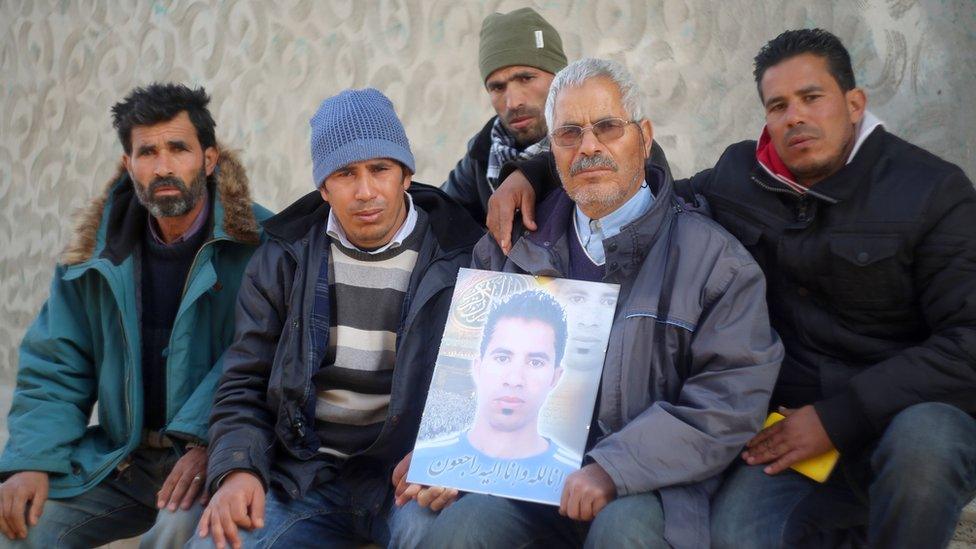
Ridha Yahyaoui's family hold a photo of their late relative in Kasserine
Ridha Yahyaoui died on Sunday after climbing a utility pole in protest over a public sector job prospect that he was rejected for.
His brother, Mehrez, told the BBC's Rana Jawad in Kasserine that the 28-year-old had been fighting for a job for two years.
"His dream was to work, he didn't like taking money from people," he said.
"I'm his brother and when I would try to give him five dinars (£1.70; €2.50), he would not take it.
"This government has forgotten us... [Ridha] climbed a pole to tell them, 'give me my rights'. He was electrocuted and he died."

Prime Minister Habib Essid, who cut short a visit to Europe to deal with the protests, has said his government has no "magic wand" with which to tackle unemployment.
After meeting French President Francois Hollande in Paris, Mr Essid was due to return to Tunisia and visit Kasserine on Saturday.
Meanwhile the French presidency announced that the country would provide €1bn (£767m) $1.1bn) to Tunisia over the next five years as part of an economic support package.
- Published18 January 2016
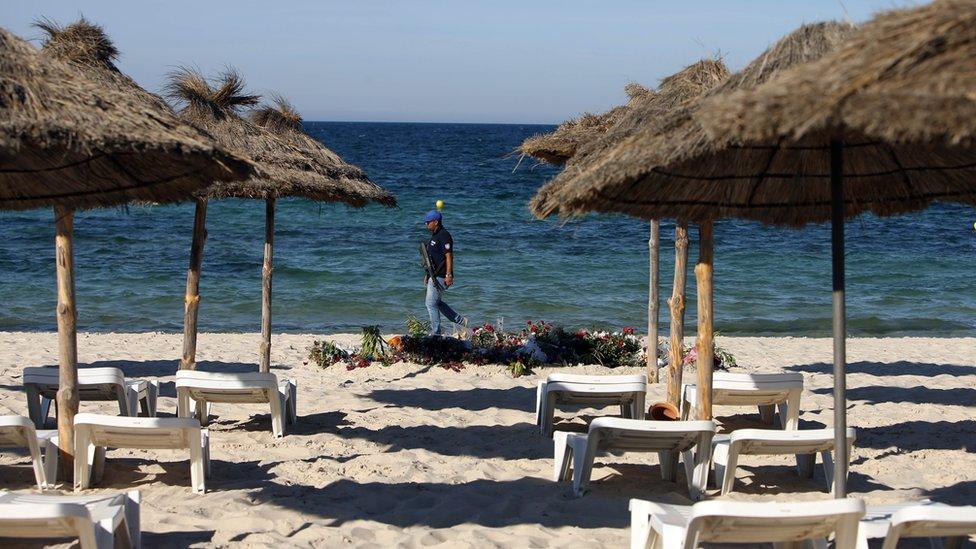
- Published10 December 2015
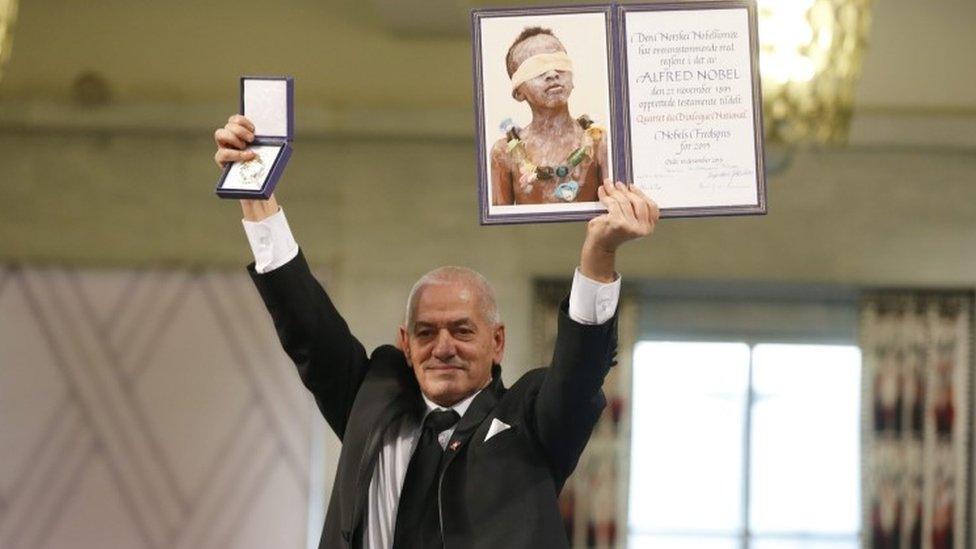
- Published25 November 2015
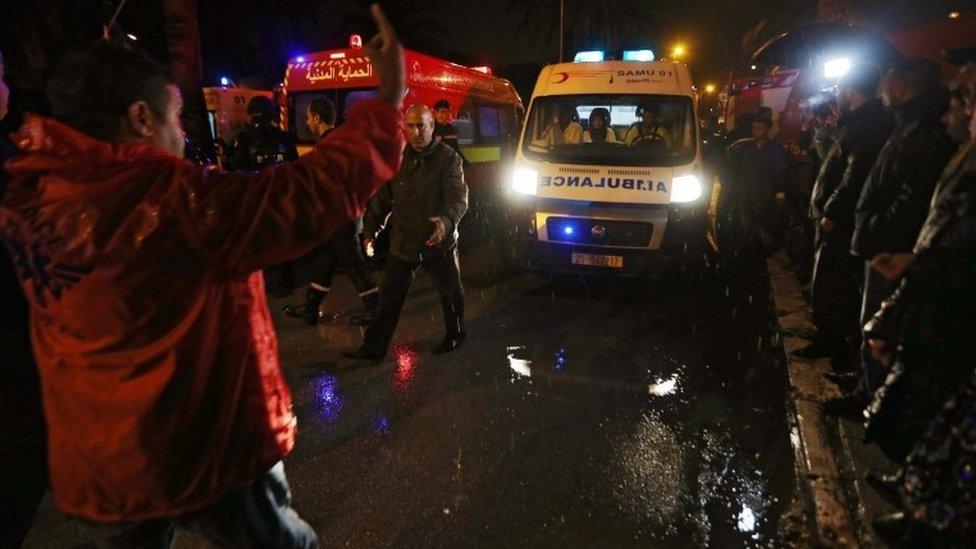
- Published12 October 2015
